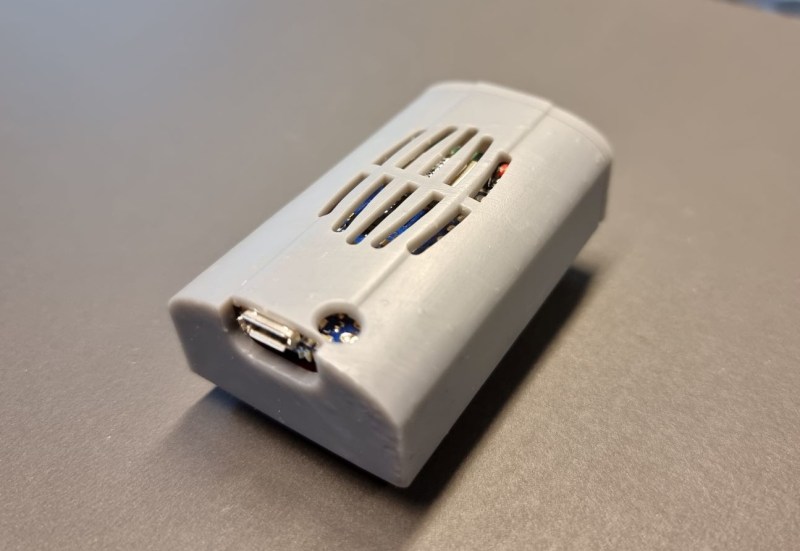There are plenty of problems that are easy for humans to solve, but are almost impossibly difficult for computers. Even though it seems that with modern computing power being what it is we should be able to solve a lot of these problems, things like identifying objects in images remains fairly difficult. Similarly, identifying specific sounds within audio samples remains problematic, and as [Eivind] found, is holding up a lot of medical research to boot. To solve one specific problem he created a system for counting coughs of medical patients.
This was built with the idea of helping people with chronic obstructive pulmonary disease (COPD). Most of the existing methods for studying the disease and treating patients with it involves manually counting the number of coughs on an audio recording. While there are some software solutions to this problem to save some time, this device seeks to identify coughs in real time as they happen. It does this by training a model using tinyML to identify coughs and reject cough-like sounds. Everything runs on an Arduino Nano with BLE for communication.
While the only data the model has been trained on are sounds from [Eivind], the existing prototypes do seem to show promise. With more sound data this could be a powerful tool for patients with this disease. And, even though this uses machine learning on a small platform, we have seen before that Arudinos are plenty capable of being effective machine learning solutions with the right tools on board.
















Not downplaying this work at all (though surprised an Arduino Nano is that effective given the more limited hardware) but as a side note, just curious if there is an adult, err, version of this research. Not to count coughs though. Probably a fair amount of data published in the last few decades after all. Just a thought.
An Arduino Nano 33 BLE is not Arduino Nano
Cool work! It seems natural to implement the gps, activity, geofencing, notification capabilities using a phone app. Your hardware would pair nicely for a low battery medical application. And it would probably get it accepted faster.
I feel there is a tradition of pointing out editorial issues for correction. Along those lines – What is an Arudino? (Last sentence)
Unlike some, I won’t be snarky. Instead comments are the open source corrections that we can all do to make the world (or at least HaD) a better place!
Most excellent. As someone who has a persistent cough it’s often hard to tell if my cough is better or worse than usual. Maybe I’ve just been really focused on my work recently so I don’t notice my cough. Does my cough vary by temperature/humidity/location? What, if any, medication really helps?
I’m excited to give this project a more detailed investigation.